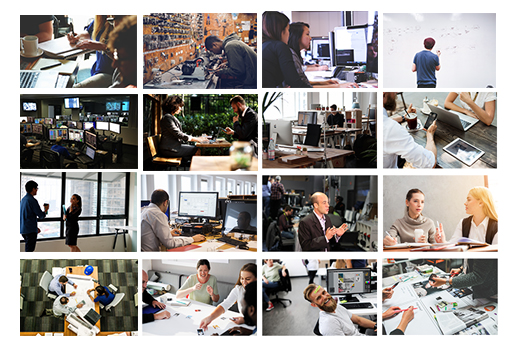7 Ideas for beginners
I have talked to dozens of exchange participants as part of my research, and I know that people use conversation partners for all sorts of language practice. These are some of the things you can do with a partner if you are staring to learn a language, so at levels A1 and A2.
Using photos
A useful technique to make your language exchange sessions fun and relevant is to use photos. You can, for instance, share some photos of your town, the last place you went to on holiday or your family and friends. Because they are photos of places and people that are part of your life, you will inevitably be talking about things you know (and care) about, so the conversation (and the vocabulary you will need for it) will feel more relevant. It will also help to create a connection with your language exchange partner.
If you don’t want to share photos of places and people that are too personal, you can use photos that are less so. For instance, in my last language exchange session, I was talking to my partner about a planned weekend away in Vienna, and I was sharing with her some photos I had found online of various tourist attractions, coffee houses and even a transport map, which enabled us to practise a lot of the language I would need in my forthcoming trip.
Playing games
There are lots of language games you can play, even as a beginner, and some of these are great in language exchange settings. Guessing games work well: for instance, if you are learning to describe houses, talk about the different rooms in your home and the furniture in each room, you can play a version of ’20 questions’ where you think of an item of furniture and your partner has to try to guess what it is by asking you questions to which you can only answer yes or no. You can take it in turns to play, and as the structures and vocabulary are quite predictable, it is something you can prepare for effectively before the lesson.
You can also play guessing games by finding a selection of photos. For instance you can look for images of specific things in your search engine and take a screenshot to share with your partner and play 20 questions. Here for instance is a screenshot of images related to ‘people at work’ – so you could ask your partner to select one image without telling you which one, and try to guess which has been chosen by asking yes/no questions such as: Are there lots of people in the picture? Are there any women? Is anyone wearing a helmet? Is anyone standing up?
You can use this technique to practise all sorts of vocabulary.
Writing and reading
In your language exchange, you can go through a piece of writing you have done in advance of the session, and read it to your partner. Ask them for help with making it sound more idiomatic, or to correct any mistakes. Also ask them for help with any words you are not sure how to pronounce. You can also ask them to read the text for you, and record it, so you can listen to it after the session - but remember to always ask for permission to record first.
If you are reading simple stories or articles as part of your language-learning ‘diet’ (see Week 6), you might want to write a summary and then read it to your partner, again asking for corrections with the writing and the pronunciation.
You might think that reading out aloud what you have read is not speaking, and you would be right, of course, but remember that you are practising the sub-skills of using the right vocabulary, correct, idiomatic expressions and refining your pronunciation and intonation, all of which are useful in preparing to speak naturally and spontaneously. You are also building up your confidence, which is essential.

